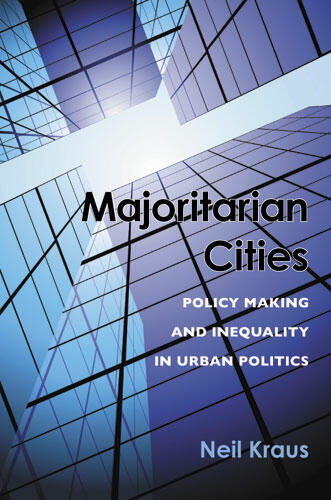Majoritarian Cities
Policy Making and Inequality in Urban Politics
Popular public policies often fail to address the needs of the disadvantaged in American cities
Description
Neil Kraus evaluates both the influence of public opinion on local policy-making and the extent to which public policy addresses economic and social inequalities. Drawing on several years of fieldwork and multiple sources of data, including surveys and polls; initiatives, referenda, and election results; government documents; focus groups; interviews; and a wide assortment of secondary sources, Kraus presents case studies of two Midwestern cities, Minneapolis, Minnesota, and Gary, Indiana. Specifically, he focuses on several major policy decisions in recent decades concerning education, law enforcement, and affordable housing in Minneapolis; and education and riverboat casino development in Gary.
Kraus finds that, on these issues, local officials frequently take action that reflects public opinion, yet the resulting policies often fail to meet the needs of the disadvantaged or ameliorate the effects of concentrated poverty. In light of citizens’ current attitudes, he concludes that if patterns of inequality are to be more effectively addressed, scholars and policymakers must transform the debate about the causes and effects of inequality in urban and metropolitan settings.
Neil Kraus is Associate Professor of Political Science at the University of Wisconsin, River Falls
Reviews
"This is a welcome addition to a growing number of political science studies probing the politics and policies affecting income inequality. ... Highly recommended."
- E.T. Jones, University of Missouri-St.Louis
—CHOICE
"There is a great deal to be heard and heeded in this book. Kraus writes compellingly, with hearfelt outrage, of apparently widespread acceptance - or acquiescence, or resignedly passive acceptance - of real injustice in and around both cities."
- Jonathan B. Justice
--Jonathan B. Justice, Political Science Quarterly

